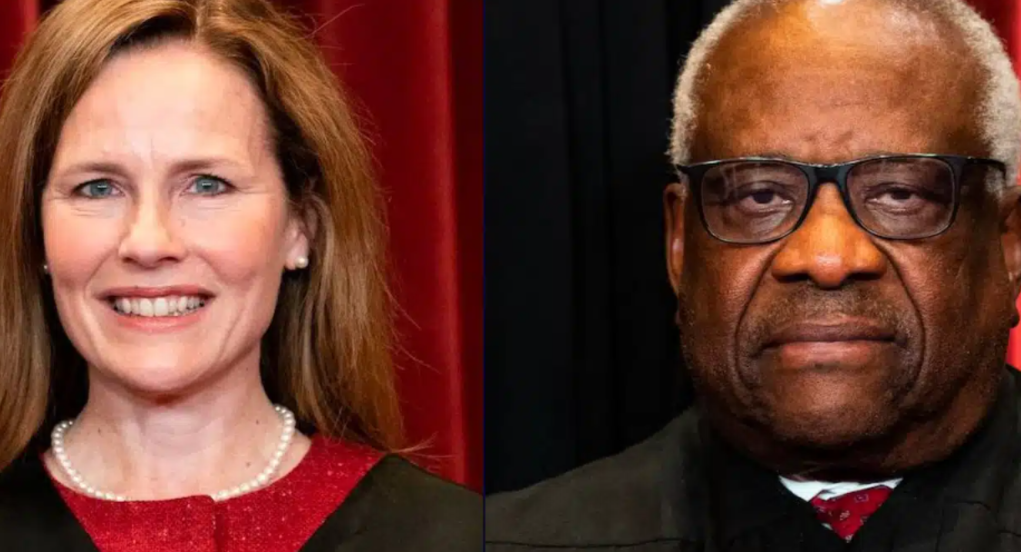SCOTUS Delivers Big Decision On Biden Administration In Abortion-Related Case

Several U.S. Supreme Court Justices, Clarence Thomas, Samuel Alito, and Neil Gorsuch, voiced their disagreement this week with their fellow justices’ decision to support the Biden administration in a recent abortion case appeal.
The majority of the Court allowed the federal government to maintain its stance of withholding family planning funds from Oklahoma because the state refused to refer pregnant individuals to a national hotline that provides abortion information.
While Oklahoma’s emergency application was rejected, the order did not include an explanation—simply noting that the application was denied. However, it did confirm that Justices Thomas, Alito, and Gorsuch would have supported the state if they had their way.
This ruling came from the Court’s “shadow docket,” a process where decisions are made quickly without full briefings or hearings. The lack of explanation is typical for this type of ruling.
“Nor is it surprising that these three justices diverged from their colleagues on this latest abortion-related case,” reported MSN, “given the Court’s decision to overturn Roe v. Wade in 2022. While Thomas, Alito, and Gorsuch were among the five justices who voted to end Roe—alongside Justices Brett Kavanaugh and Amy Coney Barrett—these three have proven to be the most dependable voices for anti-abortion plaintiffs.”
MSN also pointed out a similar instance last term when the Court permitted emergency abortions in Idaho to continue, with Thomas, Alito, and Gorsuch dissenting.
Earlier this summer, these three justices also signaled support for Republicans in the case of RNC v. Mi Familia Vota, concerning voting rights. That case, like others, demonstrated the uncertainty surrounding voting rights ahead of the November elections, with Thomas, Alito, and Gorsuch potentially ready to back Republican interests, while the other Republican appointees on the Court may ultimately influence how far those decisions go.
Tuesday’s ruling indicates that the Court may face more abortion-related issues in its next term, which begins in October.
The U.S. Supreme Court also made headlines recently in a separate case when it delivered a partial win for Republicans in Arizona concerning a law that requires proof of citizenship to vote. The Court allowed the state to enforce certain provisions of the law, but not all. Fox News noted that the ruling was seen as a significant victory for election integrity ahead of the closely contested 2024 elections in Arizona.
In this case, Justices Thomas, Alito, and Gorsuch supported the application in full, while Justices Sotomayor, Kagan, Barrett, and Jackson opposed it. Chief Justice Roberts and Justice Kavanaugh cast the decisive votes, allowing a partial enforcement of the law.
CNN explained that, while the Court blocked the requirement for voters to prove citizenship before casting a ballot in the presidential election, it did allow Arizona to enforce a rule requiring citizenship documentation before registering to vote using a state form.
The case is part of an ongoing legal battle dating back to 2013, when the Court limited states’ ability to require proof of citizenship for voters using a federal registration form, under the National Voter Registration Act. States like Arizona have continued to argue that they should have the authority to enforce such requirements, particularly in state and local elections.